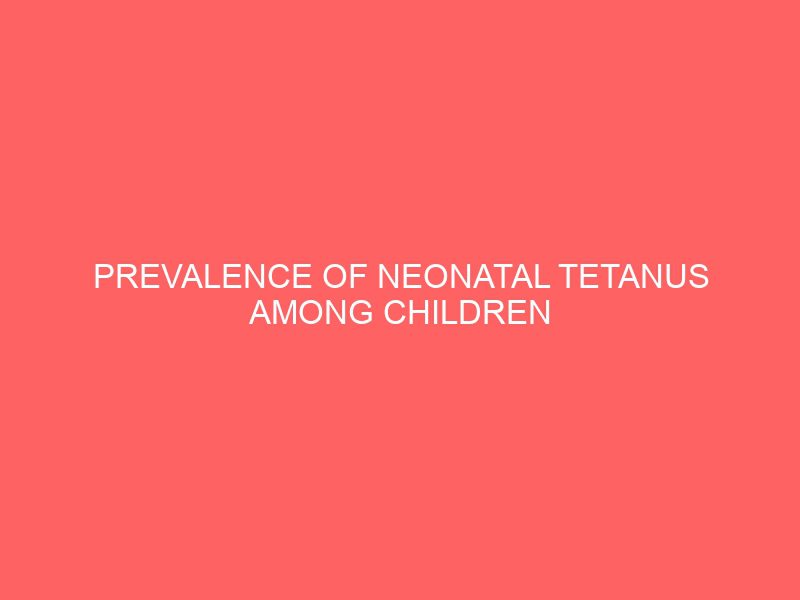Description
Abstract
Tetanus is caused by a bacterium called Clostridium tetani, an anaerobic organism found in the soil. Tetanus lives in the gum of herbivorous animals which eats grasses and passed them with faeces to the ground where they live for years in the dust. Tetanus bacteria get into the body through openings like wounds, needle prick, or umbilicus of a newborn baby. This project was undertaken to determine the prevalence of neonatal tetanus related to cultural practices despite anti-natal care within children attending Ahmadu Bello University Teaching Hospital in Zaria Local Government Area. Samples were cultured on selective media and questionnaires were issued to obtain other patient information. The prevalence of neonatal tetanus among children based on gender. Highest prevalence was recorded in males (21.1%), with the least prevalence recorded by females (18.6%). The overall prevalence was found to be 20%. Though the disease is an infectious disease that is caught as a result of mismanagement of health practices (improper hygiene), with specific management, these can be controlled.








Reviews
There are no reviews yet.